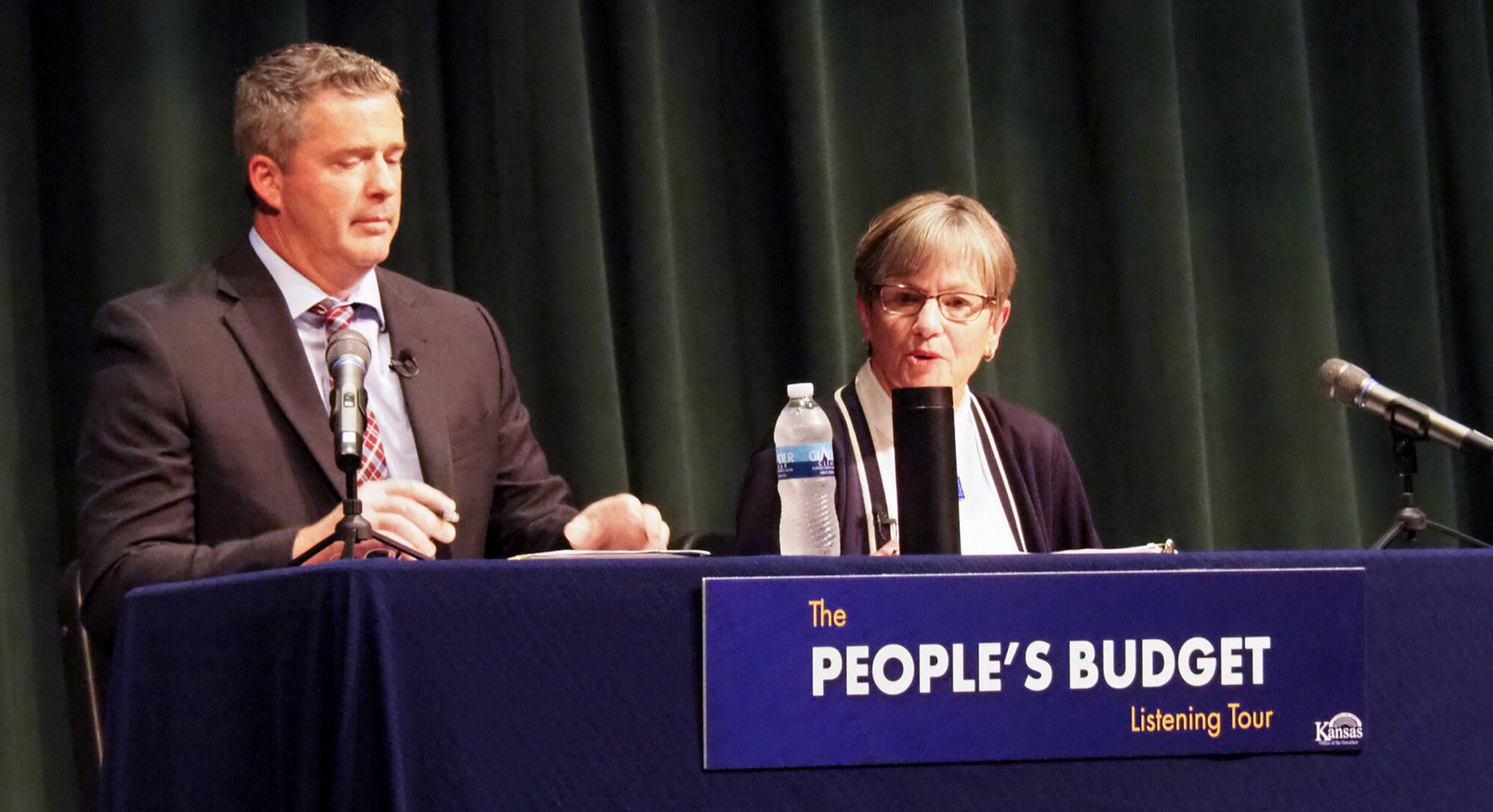
BY: ANNA KAMINSKI
Kansas Reflector
TOPEKA —The One Big Beautiful Bill Act is expected to cut $145 million from Kansas’ coffers beginning next year, state officials said.
That’s on top of an impending state budget hole that has shrunk since the Kansas Legislature passed its budget this spring, but still threatens to put the state in the red.
Budget analysts released Friday consensus revenue estimates, predicting state general fund revenues, which can be used to inform the budget-crafting process.
All told, the estimates included modest forecast changes in the economy and state revenues, said Shirley Morrow, director of the Kansas Legislative Research Department, at a press conference in the Statehouse in Topeka.
Revenue in fiscal year 2025, which ended in June, exceeded analysts’ estimates by $130 million, and revenue in the first four months of fiscal year 2026 has exceeded previous predictions by about $100 million, she said.
“The most noteworthy change is the full incorporation of the impacts of the federal tax legislation that was passed over the summer,” Morrow said.
However, she added, most of the legislation’s provisions were continuations of previous policies and will result in small changes to state receipts.
As the state incorporates federal tax law, Kansans will not automatically see deductions for tips and overtime, said Adam Proffitt, state budget director and secretary of the Kansas Department of Administration.
Of the roughly $145 million effect in fiscal year 2027, which begins in July, Proffitt listed the largest costs: $85 million for full expensing of certain business property, $32 million for full expensing of domestic research and development, $7 million for increased limitations on property depreciations and about $6.5 million for enhanced child care tax credits for individuals.
The state also has to account for its own tax changes, including cuts to corporate income taxes and property taxes as a result of 2025 legislation. One law eliminated the statewide levy of 1.5 mills for the state education building fund and the state institution building fund. The state now has to cover that missing property tax revenue.
Beyond 2027, the state’s ending balance is projected to tank.
The state ended fiscal year 2025 with $2.9 billion. By 2030, it will drop below $1.2 billion.
“The ending balance is going down because the receipts are below expenditures to the tune of $367 million in fiscal ‘27, $302 million in fiscal ‘28, so on and so forth,” said Proffitt.
Before the Legislature’s most recent budget, the numbers were closer to $700 million of overspending, he said. The decrease is largely because of a roughly $160 million drop in education costs, stemming from 10,000 fewer students in Kansas’ public school system than the previous headcount. Over five years, that drop means sizable savings, Proffitt said.
House Speaker Dan Hawkins, a Wichita Republican, said in a news release that cutting waste, fraud and abuse from state spending will be a top priority in 2026, as affordability is top of mind. He vowed to manage tax dollars with discipline.
“When the state spends like a drunken sailor, rubber-stamping everything on the governor’s pricey big-government wish list, there’s no way to stay on a responsible fiscal path,” he said. “And in the end, Kansas taxpayers are the ones left holding the bill.”
The Legislature crafted the provisions of the most recent budget, declining to use Democratic Gov. Laura Kelly’s proposals as a starting point.
“To the extent anyone reads the speaker’s press releases, I doubt they believe he is focused on how to budget responsibly,” said Will Lawrence, the governor’s chief of staff.
In the upcoming election year, he said the Legislature should “resist their natural instinct to fund pet projects for their special interest friends.”





